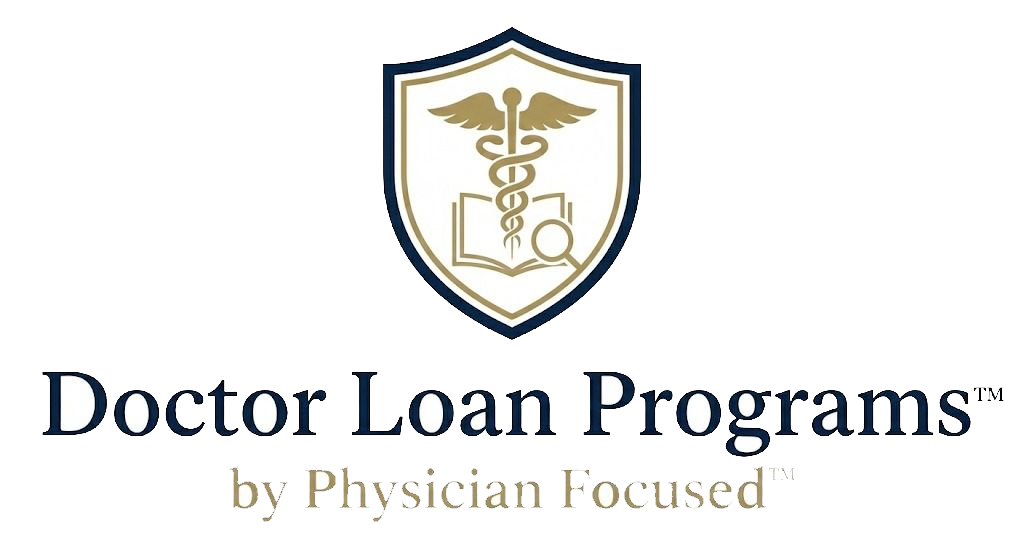Grants to Pay Off Student Loans
This is a repost of an original 10/12/2018 lendedu.com article by author: Jeff Gitlen
When someone is struggling to repay student debt, it can often sideline other financial and life goals they have for themselves. For example, it can be difficult to buy a home when you’re burdened with student loan payments.
There are some options available to deal with student loan debt, including deferment and forbearance; however, these shouldn’t necessarily be the first things you try.
Another option to take care of student debt is to look for grants. There are many grant programs, and a lot of them are linked to your employer. If you go into a certain field or work for a certain company, you may be able to find grants to pay off your student loans. These grants work like loan forgiveness programs. Grant money is essentially “free” money. Once your loans are paid off by the grant or forgiveness program, you no longer have to worry about the debt.
5 Grants to Pay Off Student Loans
When a student is initially completing the Free Application for Federal Student Aid (FAFSA) and applying for schools, they should look for grants. In these terms, the grants are money that can be awarded, and it doesn’t have to be paid back. It’s applied toward the cost of school, so it reduces the amount of education loans a student has to borrow in the first place.
Post-graduation financial aid is different. These grants are issued as loan forgiveness or repayment for debt that already exists, as opposed to a student having less debt up front.
Most of these post-graduation financial aid programs are geared toward people in specific fields. The federal government offers several grant programs, as do many state governments. Private companies and employers may offer loan forgiveness options as well.
The following are some grants to pay off student loans following graduation alongside some specific state programs, too.
- Contraception and Infertility Research NIH Grants
- Iraq and Afghanistan Service Grants
- NIH Loan Repayment Programs
- NURSE Corps Loan Repayment Program
- John R. Justice Student Loan Repayment Program
Contraception and Infertility Research NIH Grants
This loan repayment option is available to health professionals who work in biomedical or biobehavioral research careers.
Eligibility
To be eligible, applicants should contractually agree to work in NIH research for at least 20 hours a week for a minimum of two years. NIH will pay loans in a set order—first, loans guaranteed by the U.S. Department of Health and Human Services, and then loans guaranteed by the U.S. Department of Education. Then, it goes from there through the different types of student loans.
Amount
The amount available with this post-graduation federal grant program is currently a repayment of $35,000 annually. The debt has to be qualified educational debt. This can be awarded in exchange for the applicant’s work commitment at a domestic, nonprofit, or government research organization. Research funding from the NIH isn’t required for participation.
How to Apply
The application period is Sept. 1 through Nov. 15. Interested individuals can apply through the NIH website, where there is a full list of requirements.
Iraq and Afghanistan Service Grants
Iraq-Afghanistan Service Grants are federal grants that help people pay for education expenses. Payment procedures for this grant are the same as the ones for the Federal Pell Grant. This grant is not a post-graduation grant, however. It’s a grant that’s paid while the student is in school.
Eligibility
The applicant must not be eligible for a Federal Pell Grant based on Expected Family Contribution, but they must meet the remaining Federal Pell Grant eligibility requirements. Applicants can be eligible if their parent or guardian was a member of the U.S. armed forces and died as a result of their service in Iraq or Afghanistan.
Amount
Currently, the amount available is a maximum of $5,717.11 if it’s disbursed on or after Oct. 1, 2018, and before Oct. 1, 2019.
How to Apply
To apply for this grant, you will need to complete the FAFSA. Then, your school can work with the U.S. Department of Education to determine whether or not you’re eligible.
NIH Loan Repayment Programs
Along with the above NIH loan repayment program, the organization offers many other federal post-graduation grant options. This includes through the NIH National Institute of Mental Health. With this program, health professionals involved in behavioral, social, clinical, and biomedical research may be eligible for loan repayment benefits.
Eligibility
An applicant might be eligible for loan repayment grants through the NIH if they agree to work for at least two years on qualified research funded by a domestic nonprofit organization. Loan repayment benefits are awarded in addition to an annual salary.
Amount
The NIH may pay up to $35,000 of qualified student loan debt a year. This includes undergraduate, graduate, and medical school loans.
How to Apply
New applications and renewals are accepted from Sept. 1 through Nov. 15 every year. The application is available through the NIH National Institute of Mental Health website.
NURSE Corps Loan Repayment Program
The NURSE Corps Loan Repayment Program is another federal program that repays student loan debt for eligible applicants. Through this program, RNs, advanced practice registered nurses (APRNs) and nurse faculty can receive repayment for a significant portion of the debt acquired during their nursing education.
Eligibility
To be eligible for this program, you need to be a licensed registered nurse, an advanced practice registered nurse, or teach as a nurse faculty member. You should have received your education from an accredited nursing school in the U.S. or in a U.S. territory. Eligibility also requires that you work full time in an eligible Critical Shortage Facility in a high-need area or in an accredited school of nursing.
Amount
The available amount is up to 60 percent of unpaid nursing debt over two years. Plus, there is an option for an extension for a third year, which would cover an additional 25 percent of the balance.
How to Apply
To apply, interested people should sign up to receive notification emails from the government organization. They are sent out to inform people when a new application cycle will open. There is also an Application and Program Guidance document that people should read before applying for this grant.
John R. Justice Student Loan Repayment Program
The John R. Justice Student Loan Repayment Program is available from the Bureau of Justice Assistance. This is a loan repayment assistance program for people who work as state public defenders and state prosecutors.
Eligibility
To be eligible for this loan repayment program, which comes from funds allocated from the Bureau of Justice Assistance, applicants have to work as public defenders or prosecutors for at least three years. Eligibility requires applicants to be continually licensed to practice law.
Eligible prosecutors must be full-time employees of a state or local government unit, and public defenders must be full-time employees of a state or unit of local government. Prosecutors who work for the federal government aren’t eligible.
Amount
Awarded repayment benefits can’t be more than $10,000 a calendar year, and they can’t be more than an aggregate total of $60,000 per person.
How to Apply
To apply, an interested individual can see the Bureau of Justice Assistance for more information on the application process.
Other Options to Pay Off Student Loans Besides Grants
Along with the federal grant programs named above and state-based student loan forgiveness programs, other options can help people pay off student loans post-graduation.
Loan Forgiveness
Along with the programs above, there are other federal loan forgiveness options. One of the most commonly used is the Public Service Loan Forgiveness Program, or PSLF. This is a loan forgiveness program for people who work in the public sector. This can include people who work for nonprofit organizations, the Peace Corps, public schools, and as government employees.
This isn’t exactly the same as the grant programs above, because it allows participants to qualify for loan forgiveness after 10 years or 120 payments. Those payments still have to be made to qualify—the program just replaces the standard of 20- to 25-year forgiveness. There isn’t a cap on how much can be forgiven under this program.
Repayment Plans
Federal student loans also come with certain repayment plan options.
For example, consider the graduated repayment plan. With this plan, payments are initially lower and then increase, usually every two years. The goal is to have the loans paid off within 10 years. The extended repayment plan can include fixed or graduated payments, but the goal is having the loans paid off within 25 years.
The Revised Pay as You Earn Repayment Plan (REPAYE) calls for monthly payments that amount to 10 percent of discretionary income. Payments are recalculated every year.
Finally, the Income-Based Repayment Plan (IBR) offers monthly payments that are either 10 or 15 percent of discretionary income, but not more than you would have paid under the 10-year Standard Repayment Plan. Payments are recalculated every year based on your income and family size.
Recent Posts
- Long-Term Advantages Of Physician Home Loan Programs For Medical Professionals
- Physician Loans Explained – Everything Doctors Need To Know Before Buying A Home
- Top Home Loan Programs Designed Specifically For Doctors
- How Physician Loan Programs Help Doctors Buy Homes Sooner
- Physician Loans Vs. Conventional Mortgages – Which Option Is Better For Doctors?




